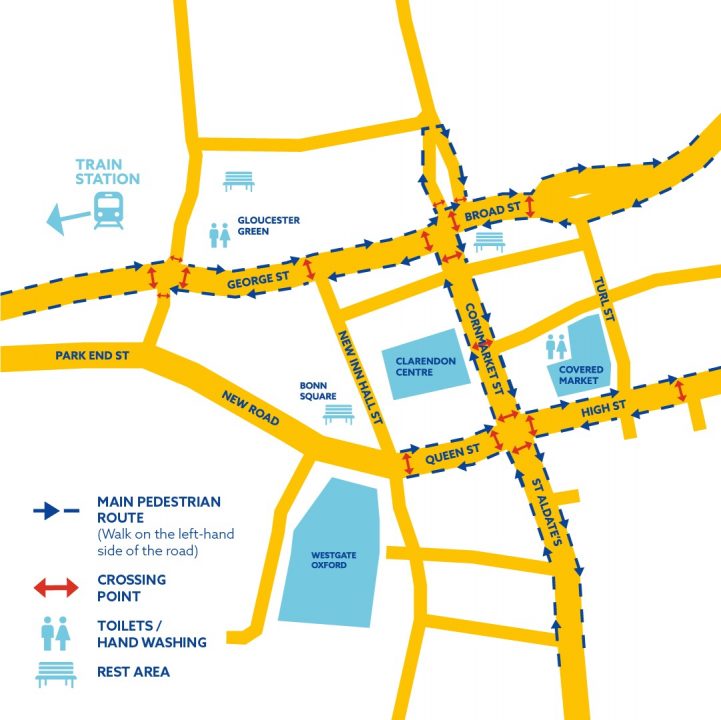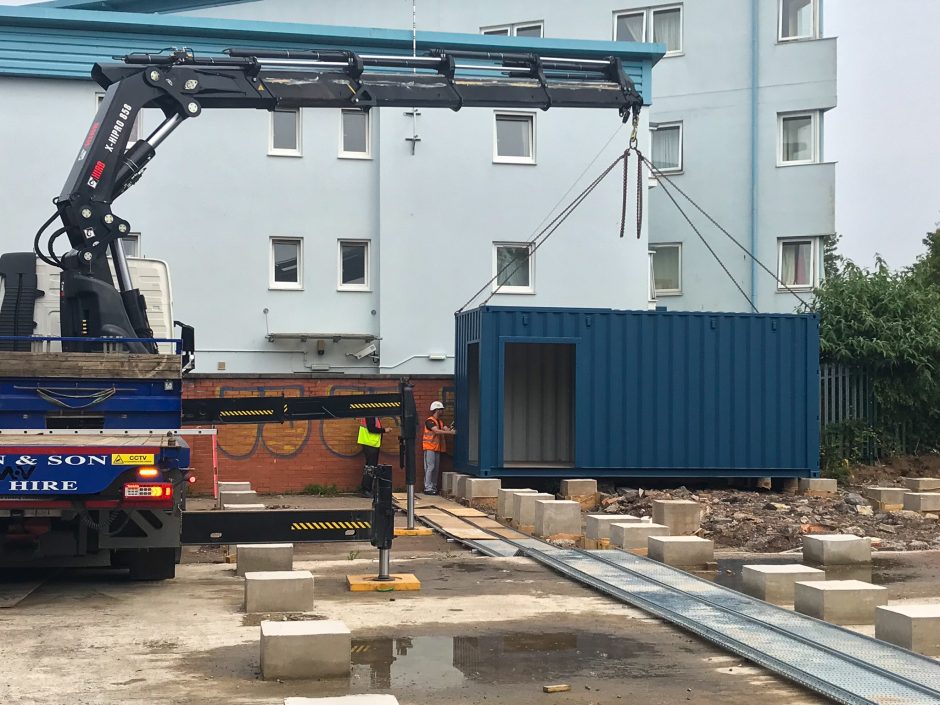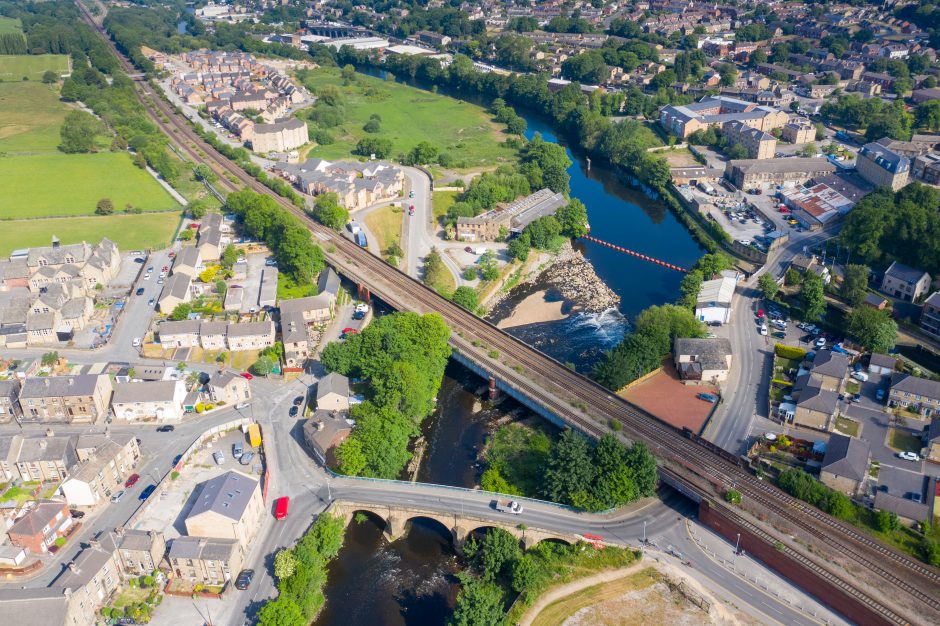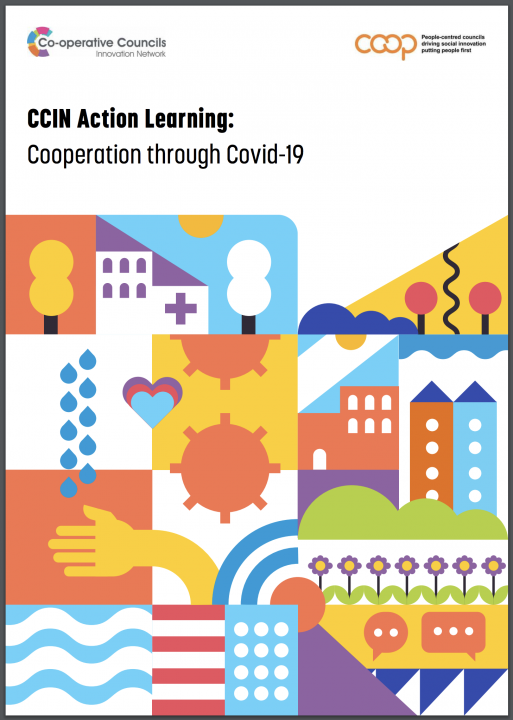The co-operative council movement was born out of the crisis of austerity: now it faces something new. As Cllr Sharon Taylor, leader of Stevenage Borough Council, puts it: “I’ve been a councillor for nearly 25 years. Covid-19 has been the most difficult challenge any of us have faced”.
Cllr Taylor was speaking at the annual conference of the Co-operative Councils’ Innovation Network (CCIN), a knowledge-sharing platform for the UK’s co-operative councils. Now CCIN’s chair, she co-founded the network in 2012 with Steve Reed and Jim McMahon – then councillors, now Labour/Co-op MPs.
CCIN has grown to include 33 councils plus associate and affiliate members. While Covid- 19 has posed them with new challenges, it has also prompted innovative approaches to service delivery. To showcase the co-op council response to the pandemic, CCIN has recently released an ebook featuring 28 case studies.
These include South Tyneside, which set up a Covid-19 Support Hub as a single point of access to provide support to the most vulnerable. It also established a working group consisting of officers from a range of services and representatives from key statutory and voluntary organisations. Furthermore, after consulting with care homes, the council brought together local artists to use 3D printers from a community arts centre to make PPE visors for frontline care workers.
“Because of its community endeavours, it was able to involve the volunteer sector from an early stage. We really managed to protect our community,” said South Tyneside Council leader Iain Malcolm.
Meanwhile, Oxford City Council tied its pandemic response to its climate policy – having been forced by the pandemic to delay the introduction of a zero-emissions zone until next year. With the city’s roads free of traffic because of Covid, residents found getting around by bikes easier.

“We aim to make some of this into a new normal,” said council deputy leader Tom Hayes. Measures included creating one-way pavements to free up pavement space; installing 130 bike parking spaces at park and rides; creating and running an inclusive transport and movement focus group; free parking at park and rides; and pedestrianising streets including St Michael’s Street and George Street. The council also worked with anchor institutions such as universities to get a joint commitment to emissions reductions. Going forward, it will focus on listening to a range of stakeholders, from motorists to cyclists and people with disabilities, and include them in the process of finding alternative solutions.
Telford and Wrekin Council had already met crisis before the pandemic, with record levels of river surges and floods. Cllr Rae Evans said the council had worked with various groups, including the Telford Crisis Support Network and Interfaith Council, to identify the challenges facing households.
Responses included the setting up of a Community Support Helpline and response team available 12 hours a day, seven days a week. More than 11,000 at-risk households were identified and contacted by redeployed council officers and community volunteers, and residents were linked with supermarket delivery slots and local foodbanks.
One council that has been leading on creating a local co-operative community is Preston, led by Cllr Matthew Brown. Its much-discussed Preston Model works with anchor institutions to encourage them to spend their budgets locally. In addition, Preston City Council has sought to promote higher wages, set up new co-operative ventures and provide affordable credit options for local residents.
Between 2012-13 and 2016- 17 – across six Preston anchor institutions – the council increased the amount of procurement spend within Preston by £74m. The Lancashire Pension Fund invested £100m in Preston as part of the Our City Deal and a further £100m in the rest of Lancashire. The funding helped to develop a student accommodation scheme on Friargate in the city centre. Meanwhile the Lancashire County Pension Fund and Lancashire County Council transferred the Park Hotel development to the pension fund, which will finance the hotel’s redevelopment.
The council also helped to set up The Larder, a worker co-op which promotes, provides and supplies local and sustainable food in Preston and neighbouring communities. And work is underway to create Preston Digital Foundation, a digital services worker co-op; and North West Black Cabs, a worker co-op of taxi drivers.
Preston’s approach inspired the Making Spend Matter Transfer project, a European network which uses spend analysis as evidence for how public and anchor institutions can bring additional economic, social and environmental benefits to the local economy through targeted procurement.
Sunderland City Council approved its community wealth-building programme in March 2020. Priorities include developing the role of anchor institutions; socially productive asset management; empowering and engaging with the local community; increasing social value through procurement; and improving community resilience. Cllr Paul Stewart said the Covid-19 pandemic had impacted the council’s speed of implementation but community wealth building remained a key focus.
In Birmingham, tackling homelessness has been a priority in the pandemic response. Rough sleeping increased by 167% nationally between 2010 and 2017. The local council used Covid-19 as an opportunity to engage with rough sleepers and help them rebuild their lives. In total, 26 people were moved into flats, seven got long-term supported housing places, four were provided accommodation in hostels and 10 were reunited with friends and families.

Cllr Pete Bradbury from Cardiff echoed these concerns, explaining that Covid-19 had not affected everyone equally, with those on lower incomes more susceptible to the virus and more vulnerable to it due to pre-existing conditions. He said his council had worked closely with the Welsh government to respond to the crisis – but expressed disappointment at the lack of engagement between the Welsh government and the UK government – threatening a revival of the issue of Welsh independence.
“For three months the first minister of Wales couldn’t get through the PM,” he said. “Tackling inequality is important, any decision taken in that respect will have an impact on the future of the union. The CCIN network shows how governing should be done, with bottom-up, community-led solutions that can help deliver great prosperity.”
Helping the vulnerable
In Bassetlaw, the primary focus of the local council was to meet the needs of ‘extremely vulnerable persons’. The town had over 7,000 people in this category; over 6% of the population – the highest level in the East Midlands and above surrounding areas. To help them, the council established a support hub in collaboration with local voluntary organisations. The approach demonstrated the benefits of social prescribing, which sees health agencies link those in need with health and social care workers.
“The green infrastructure needs to be rediscovered,” said Bassetlaw Council leader Simon Greave, adding that the region had in the past produced high carbon emissions.

Cllr Shabir Pandor from Kirklees Council expressed concerns about the potential impact of Covid-19 on jobs in West Yorkshire. He said 80,000 people in the region were at risk of losing their jobs, half of them aged under 24. During the pandemic, the council started working with Leeds University to develop a Circular Economy in Kirklees. The project aims to identify and engage local manufacturers with particular potential for circular economy innovations leading to a more resilient and sustainable local economy, creation of new jobs and better environmental outcomes.
“The virus affects those vulnerable who live in poverty. This is not new, we’ve been saying this for many years,” said Cllr Pandor, giving examples of actions his council had taken to tackle inequality. Initiatives include redrafting the council’s inequality action plan and reviewing all statues and landmarks in response to Black Lives Matter protests across the country.
Jonathan Reynolds MP, shadow work and pensions secretary and a former Stockport councillor, believes the post Covid-19 recovery should focus not only on building back greener but also preserving jobs. He said he had grown up in an area blighted by mass unemployment and urged policymakers to fight for every job. He added that further incentives were needed to get people back into work and insisted that local councils should be part of this conversation. He also thinks that universal credit needs to be replaced with “a better social security system” that takes into account the problems of underemployment, self-employment or insecure jobs. Pension funds should also be allowed to invest in climate friendly projects, he argued.
“Things feel pretty bleak, but there is hope for the future that we can come out of this pandemic better than we entered,” he said. He thinks the community wealth building approach will be key to this and can help to tackle different forms of inequality – which Covid-19 has exacerbated. Mr Reynolds said the pandemic has impacted those in poor housing or with pre-existing health conditions more. Essential workers or those who could not afford to self-isolate and miss a day of work were also more exposed to Covid-19.
“Co-op solutions are not just a better way of sharing wealth and power, they have the answers to some of the contemporary challenges we face,” he said. “Opposition to new energy projects or housing schemes is because people feel like they don’t have a say.” Co-operative approaches that bring people together to share expertise could help to secure consensus for such projects, he said – but warned that wealth and power in some regions “must not come at the expense of other regions.”

Steve Reed, one of the founders of CCIN, talked about the sense of community that had emerged throughout the UK during lockdown. Central government should take into account the advice of local councils and listen to the frontline expertise, he said – and local councils also have a role in tackling growing inequalities.
He highlighted how the disproportionate rates of infection in different parts of the country have brought the impact of inequality into focus. Poor communities were hit worse, especially in terms of people living in overcrowded spaces, workers in low-paid public-facing jobs, and those who had to keep working because they couldn’t afford self-isolation.
“All of this was a result of pre-existing inequalities in the country,” added Mr Reed. He praised CCIN for bringing together politicians from opposing sides, encouraging co-production and collaboration; and said that involving those most affected by decisions can lead to better results.
Co-operative development bodies could also play an important role in rebuilding the economy post-Covid-19. Jo White, executive director of Co-operative Futures, a co-operative development consultancy, looked at some of the key challenges faced by co-op start-ups, such as: not enough council staff understanding what co-operatives are; insufficient business support services for those looking to start co-ops; and a general lack of public awareness with regards to co-operative business models.
Councils could help to address these problems, said Ms White, by raising awareness about co-ops, providing staff training and mapping the sector. “There will be somebody in your area locally delivering co-op development – if councils had a relationship with those people, that would make a big difference, they are very knowledgeable and willing to help,” she added.
“We want to see the co-operative way of doing things as the new normal,” said Cllr Taylor, arguing that with winter approaching and the Brexit process coming to a head, co-operative values will help councils stay afloat. Community wealth building was not “a disputed territory”, she said: politicians from various parties support it. “Ten years of cuts have left us unable to help tackle job cuts, but that never stopped us.”
Download the ebook, CCIN Action Learning: Co-operation through Covid-19, here.